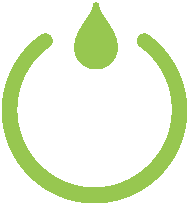Caffeine = Increased Performance?
Caffeine. One of the most debated supplement topics in sports nutrition. Why? Caffeine is becoming increasingly popular in sport via various caffeinated supplements and sports products marketed to and consumed by athletes, promising miraculous fat burning to enhanced endurance and overall athletic performance.
Caffeine is a natural stimulant commonly found in tea, coffee, and cacao plants. It’s main effect is on the brain. It stimulates the brain by blocking the effects of the naturally occurring neurotransmitter, adenosine (a hormone which works to relax the brain and make you feel more tired throughout the day). The main dietary sources of caffeine such as tea, coffee, chocolate and cola drinks, pre-trainer supplements and caffeinated sports products, provide around 30‐100 mg caffeine per serve, although this varies largely depending on the specific product.
I am often asked if caffeine is advisable pre or during training and/or competition. Caffeine has become increasingly popular for exercisers and athletes as a performance supplement because it works by stimulating the brain and central nervous system by helping you stay alert, preventing the perception of fatigue and the onset of tiredness.
Athletes that can tolerate caffeine, would see a benefit in team and intermittent sports, endurance sports, high intensity and short-duration sports. This is because caffeine is readily absorbed by the body and reaches peak concentration in the blood one hour post ingestion (depending on the type of caffeine consumed i.e. coffee, caffeinated chewing gum, energy gels) and is typically maintained for 3‐4 hours. Individual responses to caffeine vary but typically doses in the range 1-3 mg caffeine, per kilogram of body weight, are sufficient to improve performance (e.g., 70-210mg in a 70kg athlete). It is however advisable that exercisers and athletes alike aim to consume the lowest dose possible that can provide similar performance benefits with less negative side effects.
The negative side effects to high levels of caffeine intake range from increased heart rate, impaired fine motor skills, anxiety, restlessness and sleep disturbances, and gastrointestinal upsets. Caffeine intake for those competing in sports that heavily rely on the skill component, may not be the best approach. Therefore, it is highly recommended that you work with an accredited sports nutritionist to determine what protocol is best suited for your training and competition needs in order to reach our performance goals.


